Several years ago, when a friend who was new to knitting made a mistake, she would hand me her project to figure out what went wrong and fix it. She said she wanted me to fix her mistakes because I’m good at it.
And it’s true. I am good at it.
It’s because I’ve made a lot of mistakes. Like, a lot.
In fact, here’s one I made just a few weeks ago. I had a purl where I needed a knit, so I dropped down a few rounds, corrected the mistake, and then knit back up.

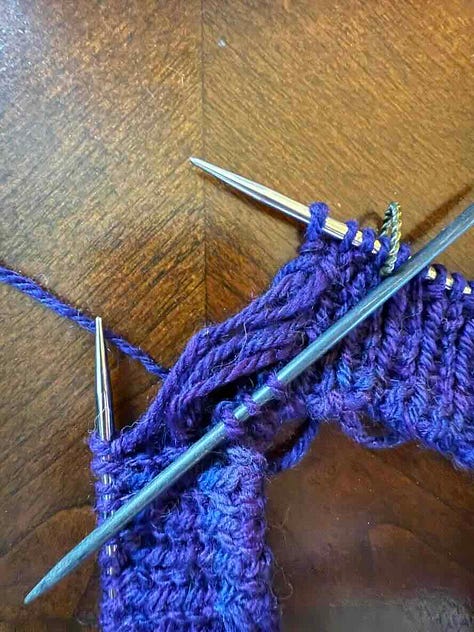
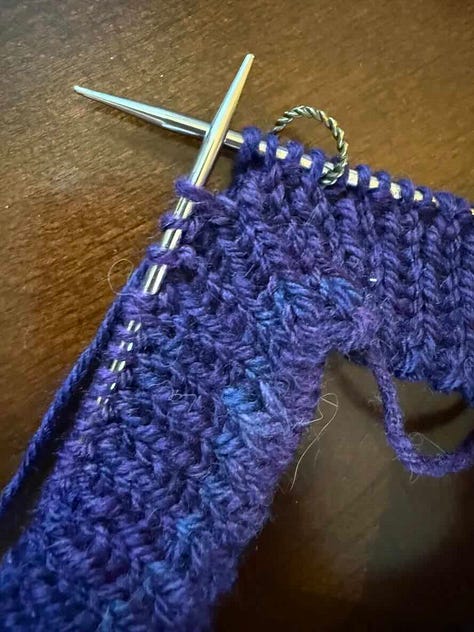
To me, this is a very small error. First of all, no one would have noticed if I didn’t fix it.1 But eh, why not fix it? It wasn’t hard.
But.
But I’m an experienced knitter; I’ve made way bigger mistakes than this. A newer knitter, someone who hasn’t fixed as many mistakes, might have been a little more hesitant to just . . . pull out a few stitches and try again. That’s okay. It takes time to get the confidence to do that. Time and practice.
I didn’t start off with the ability to fix mistakes. I had to learn how to do it. And like I said, that involved making a lot of mistakes.
If you follow me on Threads, you probably anticipated this threatened promised letter. Here’s what I said there:
Might write a newsletter titled “It's okay to be bad at things (because you can learn).”
The short version is: It IS okay to be bad at things. Everyone starts somewhere. If you write a whole book and it's no good, that's okay. You can write another, and it will be better! Also please, you wrote a whole book! With your own brain! That's huge.
Don't let fear of being bad at something stop you.
And remember: there's no cheat code for internalizing lessons and actually improving your craft.
If that’s enough for you, great! We’re done here. But if you’d like me to unpack that a bit more . . . oh do I have a couple thousand words for you.
Writing is hard, it turns out.
I mean, it sounds easy. You just sit down and type out the story. Right? But you quickly run into questions like: Where do you start? How do you communicate the absolute awesomeness of your characters? How do you articulate the emotions and show the huge battles and convey all this deep backstory that drives the present-day plot? What’s another word for “sighed?”
Mostly: How do you put the story in your head into someone else’s head without losing something vital?
Then you have to keep doing that for 50,000 - 100,000 words???
Honestly, a lot of people won’t. Because they realize really quickly that they don’t know how to do it. They don’t have the skill. And it turns out that a lot of them just don’t have the drive. That’s okay. No one’s forcing anyone to write a book. Seriously, save yourself. Go find a job that pays better and no one ever tells you, “I could be a nuclear safety engineer2 if I had the time. Sometimes I dabble on the weekends.”
Most of us are only writing books because we really want to. The only one making us do it is our own darn selves. No one else cares if we don’t do it. Not, like, in a mean way. This is just reality. If I stopped writing books tomorrow (I won’t), it wouldn’t change much for anyone except me.3
No one’s getting in trouble for not writing books.4
Okay, so what happens if you do have the drive. You finish the story and ask someone to read it, but they say, “Sorry, I didn’t really like it” or “I didn’t understand it.” Or maybe they come back with a laundry list of things you need to fix. How do you deal with the fact that — after you worked your tail off to make this huge thing — you might not be very good at writing?
Okay, I can tell that I’m already making some of you really mad. Or sad. Or something. Bear with me.
Here’s the thing about being bad at something you love: you can get better at it.
Maybe you’ve noticed that I’m saying “bad at writing” instead of “bad writer.” That’s because being bad at something can be a temporary state.
You can learn, you can improve, and you can become good at the thing you love.
I can say this with confidence because when I was a new writer, I was not good at it. I was, you might say, bad at writing.
A lot of you already know my author origin story, but for the new folks: the first book I published — INCARNATE — was the seventeenth manuscript I finished writing. S e v e n t e e n t h. That I finished. We’re not even counting all the stories I abandoned partway through. So, to bring a little basic math into this (sorry), that’s sixteen whole manuscripts before that I couldn’t get published.5 Why? Because most of them weren’t good.6
I can go back and look at those early manuscripts and see a glimmer of talent. Like, I don’t want to totally knock my past self. There was something there. But that doesn’t mean those books were ready to be published. I wasn’t ready to be published. Because when I did something right, it was mostly by accident. I was working off instinct, thanks to having read a lot of books, but anything I did right wasn’t necessarily repeatable: I was not reliably good at those skills, at least not at first.
So what happened?
People (gently) told me I needed to get better if I wanted to be published. I got a lot of feedback on my work, suggestions for improvement, and I decided I wanted to do it. I also learned how to usefully critique other writers’ work, which helped me see the flaws in my own writing. Learning to be good at something you love, it turns out, takes a lot of effort.
All your favorite authors had to learn how to write. Even Hush. (As seen here.)
Here’s the thing: there’s no cheat code to competence. This is work you have to do yourself.
I don’t say this to demoralize you, but to empower you. Once you realize that the only way you can get good at writing is to do the work, you are in complete control. Here’s what that might look like:
You write something.
Your friend gives you a few things to work on — character motivation, not stopping the narrative to infodump at your reader, and so on.
Okay, so how do you fix character motivation? Dig into their backstory? Make sure they’re always moving toward their goal? What is their goal in this story? Do they need a little extra motivation to do this thing they wouldn’t normally do? Maybe an antagonist can come in and tip the main character into action.
And now that we’ve got the character motivation down, what about the infodump? How to fix that? Well, we could pull some of the worldbuilding into dialogue, if it’s something the characters would discuss. We could have this absolute nerd (affectionate) character monologue about the history, then have someone else rudely cut them off once the relevant stuff has been conveyed. Then, you know, some exposition isn’t bad, so this bit can stay. But maybe it’s not all needed right now, so some of this information could be saved for later.
Cool. Okay. So you go back and you work on those two things, and now you can see that this scene is stronger. It’s more interesting to read. It feels like it has forward momentum.
Now, not only have you improved the thing you wrote, but you know that you have a tendency to infodump here and there — and next time, you might catch it as you’re doing it, and be able to go back immediately to fit it into the scene a little better.7 You’re going to be aware of what you’re good at . . . and what you sometimes need a bit more time with.
And this is what you do! Again and again. There’s no progress bar to fill up, no skill level display, so there’s a decent chance you won’t know you’ve crossed over from kind-of-meh to actually good. You’ll get hints along the way — writer friends who compliment things they used to criticize, agents who request full manuscripts when they used to only send form rejections — and at some point you’ll be able to see how far you’ve come; you’ll look at your early work and be able to see the flaws (and the glimmers of all the things you naturally did well).
Am I advocating for writing a bunch of stuff and then never doing anything with it once it’s been rejected? Well, maybe. If that’s right for you. It was certainly right for me. I look at my early manuscripts and boy am I proud of them . . . and boy am I glad no one will ever read them. They weren’t good; they were practice. I didn’t realize that at the time — I genuinely thought some of those stories would become my debut novel. Now I can see clearly why they were rejected, and that it was actually a huge favor to me.8 As I said: those stories weren’t ready, and neither was I.
This process can take years, and you’ll probably write two or three manuscripts that don’t go anywhere. Maybe more. Maybe a lot more, if you’re me.9
It’s okay if you mourn them. It’s okay if you plan to go back to them one day.
Just know, no practice is ever wasted, and even if you never actually go back to those books, they were important to your development and they served their purpose.
We live in a world where we’re used to instant gratification. We hit a button and food appears at our door. We wonder, “who sang this song?” and our phones can tell us. We can put a thought out to the world — are book titles short because of social media character limits and ebook thumbnails, or are those things unrelated? — and get instant feedback. Our world doesn’t reward the work, only the result.
But it takes time to write a book. You can’t do it without putting in the work — and the time.
So of course it feels like one should be able to hit the next goal immediately after typing “the end.” We’re so used to things happening at light speed that spending six months writing a book seems like it should be enough. It’s a long time!
It is a long time — I’m not arguing that. But for most of us, it’s not enough time to reach the level of competence needed to write a book worth reading. It’s probably going to take more time.
But Jodi, what about genAI? I can write a book really fast with that.
No you can’t. I mean, it can generate some text for you, but you didn’t write it. The machine put one word after another, based on statistical probability and the parameters set for it, but the machine doesn’t know why it works or how to improve it. And without making the mistakes and learning how to fix them — neither do you. Letting the machine generate text for you is only going to delay your own development as a writer. (Read this letter from author Erin Bowman. She has a lot of great thoughts about this.)
Think back to my knitting friend, the one who kept giving me her work to fix. Do you think she would have learned to fix her own mistakes if I’d kept doing it for her?
Again: there is no cheat code to competence. No glitch to exploit. You can’t speedrun the hard parts. There’s no training montage, only the actual day in and day out of trying and failing and trying again.
If you want to be good at something, you have to be willing to be bad at it first.
Celebrate the work. Enjoy the process.
Feel empowered to be bad at it. Because being bad at it means that you’re starting — it means you’re on your way to becoming good at it.
Some letters related to this topic
Make sure you read Erin’s “What does it mean to write?”
Letters from me:
Three things I would NOT have wanted to hear as a new writer
Can anyone actually tell if the book is good based on the first few pages?
Want to see me in person? I’ll be at a couple Barnes and Noble stores with author Nashae Jones:
July 13 at 2pm — Fairfax, VA (Fair Lakes Promenade)
Preorder my next book, CONFESSIONS FROM THE GROUP CHAT:
One More Page (signed/personalized) | Bookshop.org | Barnes and Noble | Amazon
Can you see the mistake? Look at the first stitch on the right-hand needle, then look down just a few rows. There’s a purl bump instead of a knit V.
No, writing is not really comparable to nuclear safety. Just let me feel the feeling!
My agent might do a wellness check, heh. And she’d probably insist I fulfill my contracts. But honestly, she has other clients she sells. My readers have other authors they like.
Unless you’re under contract. You know what you signed.
Context: I got my first agent around ms #7, but nothing sold, which was, in hindsight, a huge relief, although it was painful in the moment. We parted ways and I wrote more books, but continued getting rejected until I wrote INCARNATE, at which point I had multiple agent offers, I accepted Lauren’s, and then we sold the trilogy at auction.
Additional context: I did not query all sixteen of those manuscripts. I queried a lot of them, but some of them were sequels — good to practice! — and stuff I eventually decided I wasn’t that into after all.
Some of them were good but they weren’t right for the agents I wanted, or they weren’t right for the market.
Or not! Sometimes, the stuff we write in first drafts is just for us — little reminders or trying to sort out something about the story — so leave it for now if you want. You should catch it on the second draft though.
Again, this hurt so much at the time. I did not view this as a positive then.
I skew the average.

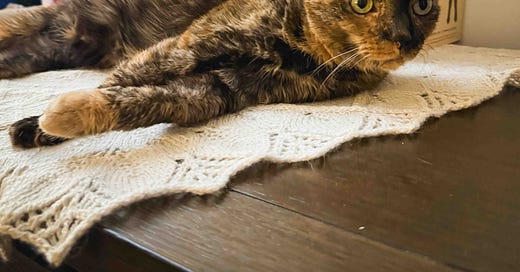


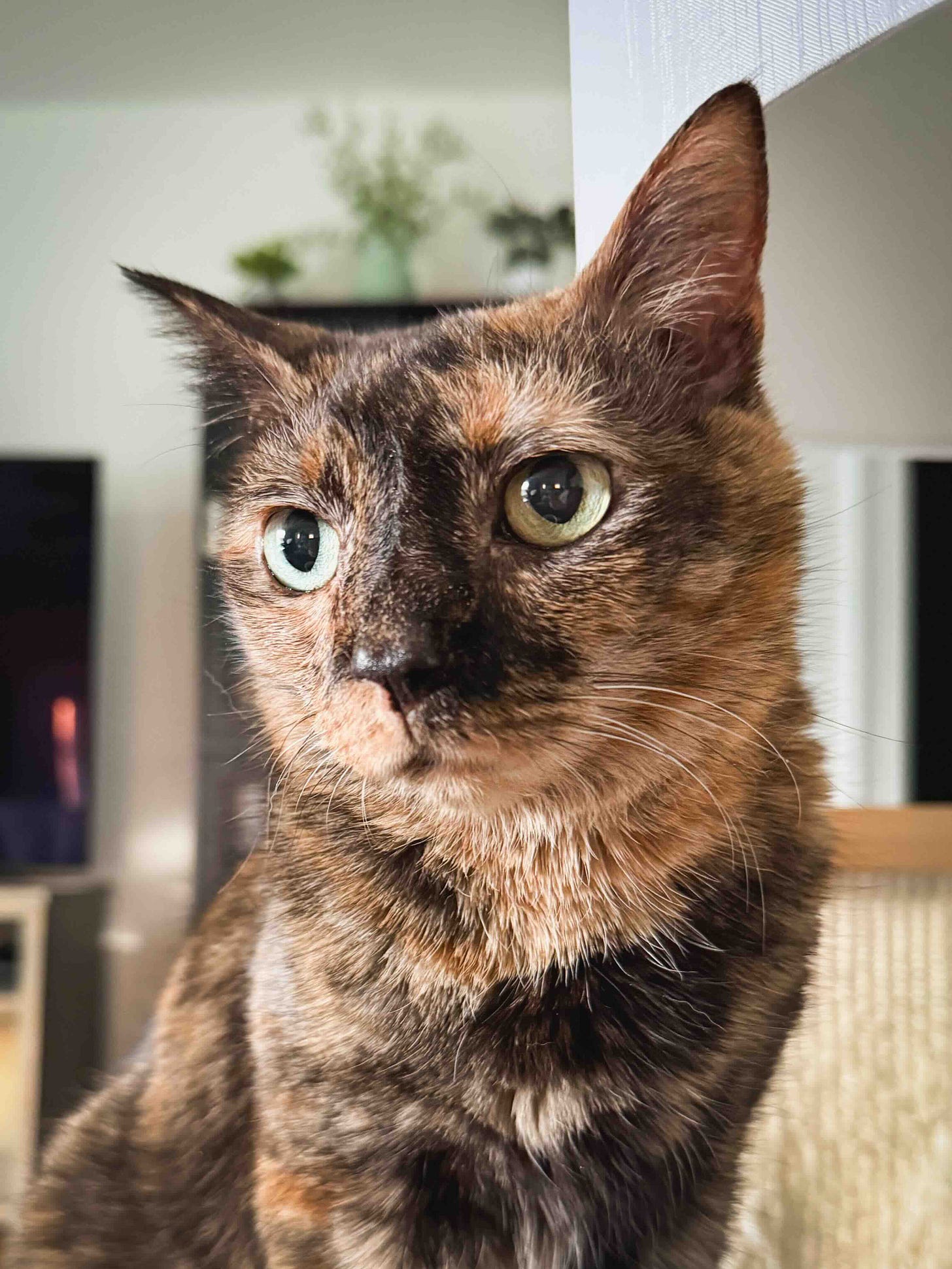
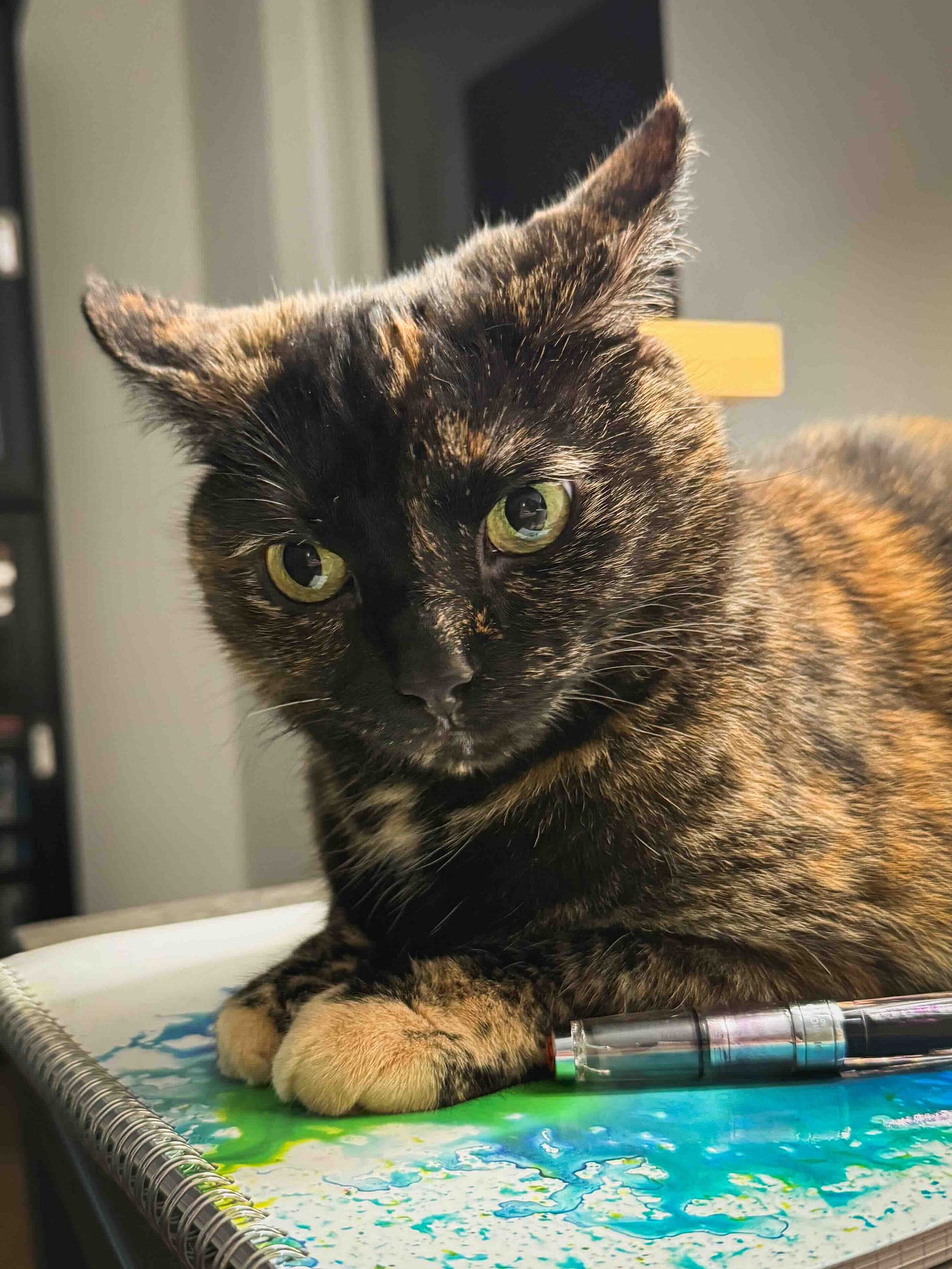

So much hard truth here! My daughter got a ukelele for her birthday and is so frustrated that she doesn’t sound like Ingrid Michaelson….yet. Growth Mindset! Keep on keeping on!
Thank you, Jodi. I needed this today.